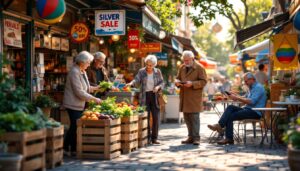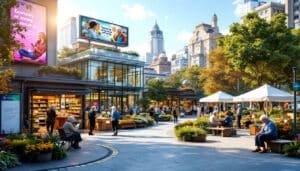The Homes for Reception and Residence for Autonomy, commonly known as MARPA, are establishments dedicated to elderly persons over 60 years old. Created to offer a suitable living environment for seniors living in rural areas, they provide support while allowing for a strong connection with their familiar surroundings. By combining autonomy and personalized assistance, the MARPA are committed to meeting the needs of their residents while allowing them to enjoy an active social life and access to various tailored services.
The Homes for Reception and Residence for Autonomy, commonly known as MARPA, are establishments intended to host elderly persons over 60 years old. Established in the 1980s, these homes aim to provide an alternative to the relocation of seniors to urban environments, thereby preserving their rural living environment.
At the heart of their design, the MARPA are part of a commitment to personalized assistance. Also known as Rural Reception Homes for Elderly Persons, they offer a family-like and warm environment where residents can maintain their habits while receiving daily support. The goal is to maintain the autonomy of seniors for as long as possible.
A MARPA is characterized by a warm and secure environment. The establishments, usually small (hosting around twenty people), allow for strong social ties between residents. This encourages group dynamics and mutual aid, a crucial element for preserving the well-being of elderly persons.
The accommodations offered in a MARPA are adapted to the needs of seniors. They come in the form of studios or two-room apartments, equipped with a kitchen and a bathroom. This arrangement allows residents to furnish their space to their liking, thus recreating a true home that is their own. The layout, in turn, is designed to ensure the mobility and safety of occupants (wide doors, installations for wheelchairs, ergonomics of handles, etc.).
The MARPA offer a range of services to meet the needs of residents. This includes options such as prepared meals, assistance with daily living, and laundry services. The establishments also have a teleassistance system to ensure that residents can easily reach the staff in case of need.
In terms of activities, the MARPA highlight a varied program that adapts to the desires and skills of residents. Cultural, sporting, playful or creative activities are regularly offered, thereby fostering engagement and individual growth among seniors.
The types of stays in MARPA can include permanent stays, temporary stays, overnight stays, or day stays. Each of these stays is designed to fit the specific needs of residents, whether for long-term assistance or short-term support. This flexibility allows for effective responses to the evolving needs of each individual.
Regarding the rates, these vary according to several criteria, including location, level of comfort, and included services. In general, costs may include rent, accommodation and meal fees, as well as care and activities offered. Financial aids such as the APA may also influence the final amount to be borne by the resident.
For those wishing to establish a MARPA, it is essential to follow a structured approach. This includes market analysis, the development of a detailed project including budget and financing plan, the writing of a creation file, and the application for authorization from the Regional Health Agencies. It also involves consulting the opportunity to partner with professionals and specialized federations to maximize the chances of success.

FAQ on MARPA
What is a MARPA? A MARPA, or Home for Reception and Residence for Autonomy, is an establishment intended for seniors over 60 years old, allowing them to maintain a familiar living environment while benefiting from personalized assistance.
Why choose a MARPA? MARPA allow elderly persons to stay in a known rural environment, while preserving their autonomy through adapted housing and a team of health professionals.
What services are offered in MARPA? MARPA offer equipped studios or apartments, a varied activity program, as well as services such as meals and assistance with daily living.
What types of stays are offered in MARPA? Stays can be permanent, temporary, overnight, or day, thus adapting to the needs and degree of autonomy of residents.
What is the cost to join a MARPA? Rates vary based on location, services, and the resident’s resources, including rent, accommodation fees, as well as care and activities.
How to create a MARPA? Creating a MARPA requires a market study, project development, file writing, obtaining authorization from the ARS, and establishing the structure.







